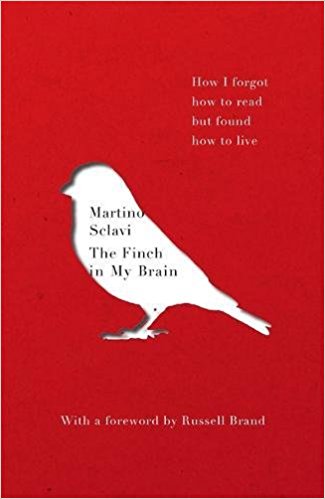by James Rakoczi, PhD researcher, Department of English

Reading Martino Sclavi’s The Finch in My Brain (Hodder & Stoughton, 2017) took longer than expected. I found myself slowing down, re-reading passages, trying to work out how the text relates to itself, to its images, and to the people in Sclavi’s life.
My copy of the text is now defaced by marginalia, doodled over in an inky green.
Page 308, for example, tells me to re-read p. 215. I turn that page, and p. 216 directs me to p. 268, and so on. My copy has gone a bit rhizome: an ecology of self-citation…
In early 2011, living in LA, Italian film producer Martino Sclavi was experiencing bad headaches. He thought it was the coffee, or the stresses of script-writing to deadline. In fact, it was a grade 4 glioblastoma – an extremely severe brain tumour. During a script-reading, Sclavi became increasingly delirious. Driven to a hospital by a friend, Sclavi recalls how his friend’s words ‘stopped having a meaning for me… just sound with no information. A rhythm with no shape’ (p. 43). This loss of ‘meaning’ but retention of ‘shape’ characterised not only Sclavi’s immediate crisis but presaged the direction his life would take.

